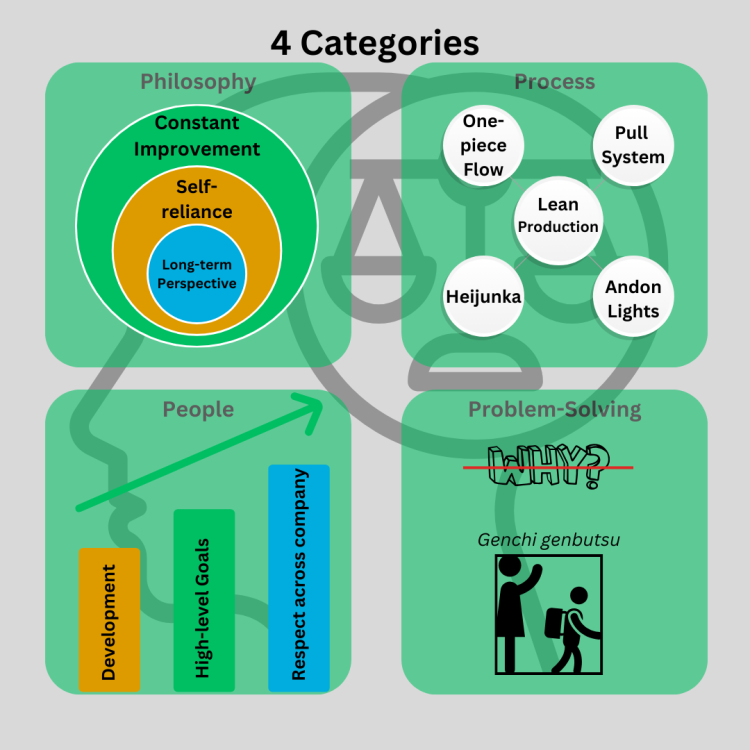Small businesses can greatly benefit from the wisdom of the Toyota Production System (TPS), a beacon of manufacturing and operational innovation. TPS is built on four foundational principles: Kaizen (Continuous Improvement), Heijunka (Level Scheduling), Kanban (Signaling System), and Genchi Genbutsu (Go and See). These principles, while developed for large-scale manufacturing, hold invaluable lessons for small business efficiency, product excellence, and a positive work environment.
Embracing Continuous Improvement with Kaizen
Kaizen is all about fostering a mindset of ongoing, incremental betterment. It’s not merely a series of actions but a cultural ethos that should infuse every aspect of a small business. By encouraging every team member to suggest enhancements, small businesses can create a dynamic atmosphere of creativity and flexibility, essential in the face-paced market landscape.
Small Business Takeaway: Cultivating a Kaizen culture means building an organization where every voice is heard, and proactive improvement is the norm, leading to a more dynamic and engaged team.
Balancing Demand with Heijunka
Heijunka tackles demand fluctuations by smoothing out production schedules, which for small businesses translates into managing resources more predictively and efficiently. This principle helps in leveling workloads and reducing the bottlenecks that variability in demand can cause.
Small Business Takeaway: Applying Heijunka can help small businesses in planning their operations more strategically, ensuring that resources are utilized optimally and that they can swiftly adapt to changing customer needs.
Streamlining Processes with Kanban
Kanban, or the visual management system, embodies the just-in-time (JIT) philosophy of TPS, ensuring that work proceeds only when there’s a demand. This approach minimizes surplus inventory and waste, aligning production efforts with real-time demand.
Small Business Takeaway: For small businesses, adopting a Kanban system can clarify workflows, prevent overproduction, and foster a more coordinated effort across teams, leading to leaner operations.
Enhancing Problem-Solving with Genchi Genbutsu
Genchi Genbutsu emphasizes the importance of observing problems firsthand to understand their context fully. This principle advocates for a hands-on approach to problem-solving, ensuring decisions are informed by direct observation and evidence.
Small Business Takeaway: By practicing Genchi Genbutsu, small businesses can develop a problem-solving culture that values ground-level insights and data-driven decisions, enhancing the quality of solutions.
Lessons from Toyota’s Legacy
TPS’s evolution and success provide small businesses with a blueprint for operational excellence. These principles, initially tailored for Toyota’s specific challenges, have proven their effectiveness across industries and scales.
- Innovation and Flexibility: The history of TPS underscores the importance of being adaptable and continuously innovative.
- Employee Empowerment: Kaizen shows the value of involving everyone in the improvement process, boosting morale and job satisfaction.
- Customer-Aligned Efficiency: Principles like Heijunka and Kanban highlight the critical nature of aligning operations with customer demands, ensuring businesses stay competitive and responsive.
- Empirical Problem-Solving: Genchi Genbutsu teaches the importance of basing decisions on direct evidence, a key factor in effective problem resolution.
For small businesses, integrating TPS principles means not just operational improvements but fostering a culture of engagement, innovation, and customer-centric efficiency. The enduring legacy of TPS serves as both inspiration and a practical guide for small businesses striving for excellence in an ever-evolving marketplace.










